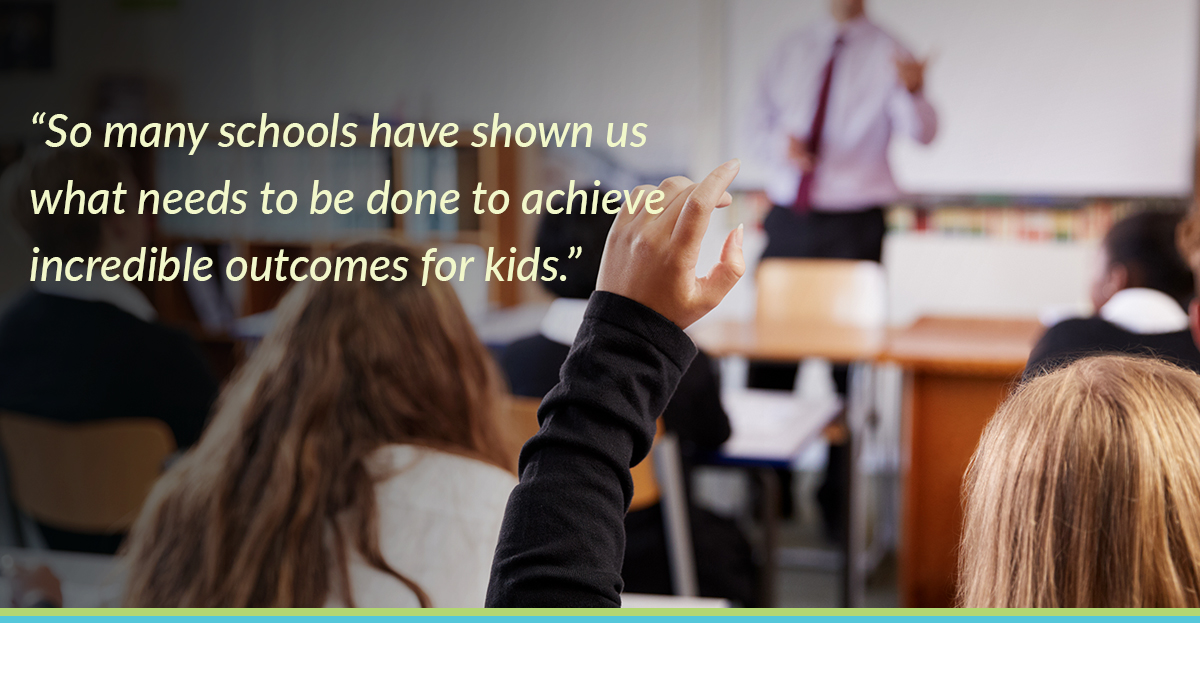The solutions to the challenges we face already exist within our schools.
The past year has been tough on everyone.
We all faced unprecedented challenges, and we’ve all had to go about dealing with them in our own way. Every person, family, organisation, community & country has had to feel its way through the darkness and hope that it’s made the right decision at each point.
This has been especially the case in the way we educate our young people. Parents and teachers have worked together probably like never before – to support home learning and teaching in schools, feed families, assess pupils, determine qualification grades, administer COVID tests… The list goes on.
Schools never “closed.” However, as they fully reopen it is clear that there is a renewed respect for what they and their people do. There’s also a better understanding by society of how complicated and hard it is to provide an excellent education for every child.
As we cautiously start to move from a day-to-day existence and consider the post-COVID future, it is only natural that evergreen debates about the purpose of education and organisation of schools bubble up once more.
Whether it’s online conferences, newspaper editorials, comment pieces, social media, or just between friends over the phone – there is a definite sense that Building Back Better for schools shouldn’t mean a return to how things were before.
It is completely legitimate for people to want to shape the education that our children receive. What young people should learn, and how they do so, is something we should all care about. And there is no one answer to the questions that inform these discussions. It is one of the things that makes working in and around schools so stimulating and refreshing.
However, along with the excitement of the new and different, it’s vital that we don’t lose sight of the importance of continuity and consistency at a time like this.
Children have faced a year like no other. They have made sacrifices that will impact them for some years to come. Being confined to home away from friends and family has affected youngsters more than most – it is one of the reasons why getting them back to school has been so important.
And as they return to classrooms across the country this week, it is clear routines and high expectations that will get them back into the swing of things more than anything else.
This is also true for hard-working teachers. In many ways remote learning was tougher for staff than pupils. The chance to revert to familiar practices with classes is important. Now is not the time to be ripping things up and trying out new ideas, but for people to be able to enjoy face-to-face interaction once more (albeit partly concealed behind masks.)
We already know the kind of things that make a practical & positive impact on children’s learning: excellent attendance, exceptional behaviour, a broad well-sequenced curriculum, all delivered effectively and leading to great experiences and exam results.
So many schools have shown us what needs to be done to achieve incredible outcomes for kids. Are our post-COVID difficulties really so different to the ones we faced before the pandemic – perhaps they’ve just intensified? And the children we most worry about are the ones who will most benefit from being back in well-run, calm and orderly schools from this week.
The solutions to the challenges we face already exist within our schools. We’ve had decades of revolution and reform to the system. The past few years saw the gaps between groups start to close. There is a risk that we’ll throw the baby out with the bathwater, when what is most needed is simply to get back to business.
Here at PTE we’ll continue to promote the fundamentals of a great education, and explore how parents and teachers can put into practice in more of our schools the kind of things that make the most difference to students and staff.
For now though, it’s time to give thanks to those who have enabled children across the land to get back to school, and see their friends and teachers in person once again.

